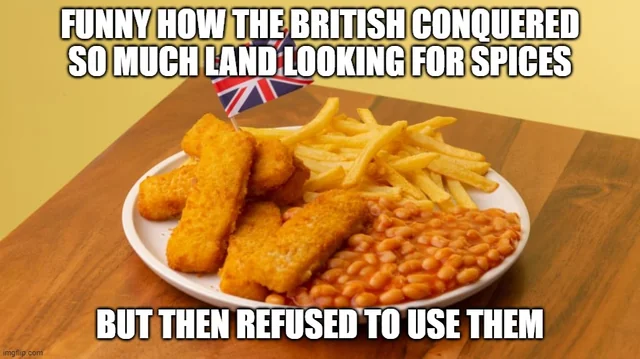this post was submitted on 05 Dec 2024
305 points (93.7% liked)
A Comm for Historymemes
1611 readers
212 users here now
A place to share history memes!
Rules:
-
No sexism, racism, homophobia, transphobia, assorted bigotry, etc.
-
No fascism, atrocity denial, etc.
-
Tag NSFW pics as NSFW.
-
Follow all Lemmy.world rules.
Banner courtesy of @setsneedtofeed@lemmy.world
founded 2 years ago
MODERATORS
you are viewing a single comment's thread
view the rest of the comments
view the rest of the comments

Probably an urban myth, though
https://www.boston.com/news/wickedpedia/2023/10/10/did-prisoners-eat-lobster-in-colonial-times/
Dunno, I've seen many more sources in support of the general thrust of the idea (if not necessarily the details that article claims to refute, like it being the primary food for prisoners)
https://www.history.com/news/a-taste-of-lobster-history
https://thekitchenknowhow.com/did-lobster-used-to-be-prison-food/
I mean, the History channel is a joke. And the thing about urban myths is, everybody repeats them. You just can't ever find an actual source for the information.
https://psmag.com/economics/how-lobster-got-fancy-59440/
The urban myth overwhelmingly seems to be that prisoners were primarily fed lobster, and a recurring unsubstantiated story of servants refusing to eat it several times a week. Not in contestation is that it was a lower-class food, that it was cheap, or that prisoners in the period certainly were fed lobster oftentimes precisely because it was cheap.
Ah sorry, I actually misread your 1st reply to me. Yeah, I'm not disputing that lobster used to be cheap and low class. I'm just saying the story about it getting fed to prisoners as their primary diet.
No worries! Always good to combat urban legends, in any case!